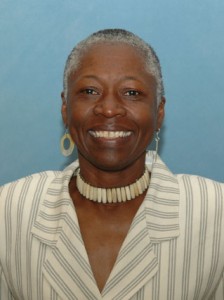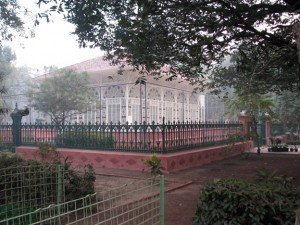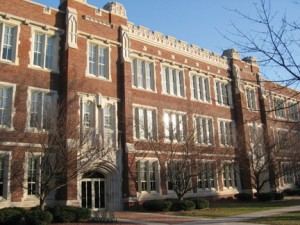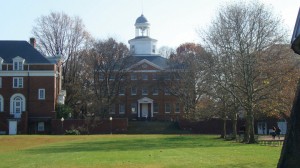Learning is more than a rote sport. Jasmine Chabria tells you about unconventional teaching methods AROUND THE GLOBE
 What about Principles of Peace and Global Co-Existence?
What about Principles of Peace and Global Co-Existence?
University education isn’t anymore about rote learning followed by reproducing answers on the exam sheet. Soka University of America has gone beyond textbooks. Their mission is to foster a steady stream of global citizens committed to living a contributive life. Founded upon the Buddhist principles of peace, human rights and the sanctity of life, SUA offers an interdisciplinary curriculum. Gail Thomas, PhD, Professor of Sociology at Soka says, “Soka University’s principles are to foster leaders of: culture in the community; humanism in society; pacifism in the world; and for the creative coexistence of nature and humanity. The founder of our university, Daisaku Ikeda, continues to express in all of his writings that education must be for the purpose of serving humanity and grappling with the major social problems that impact our world locally and globally. Educating students to use their skills and knowledge to serve humanity are at the base and apex of teaching and learning.” She adds “Our semester of ‘mandatory study abroad’ for undergraduate students, along with problem solving opportunities in intensive ‘learning cluster’ classes help prepare our students become culturally competent, caring and contributive local and global citizens.”
 BENEFITS: Gail Thomas says that these principles prepare students to successfully meet the challenges of living and serving in a constantly changing, culturally diverse world. “Knowing who they are in terms of their strengths and limitations, and continuing to improve and challenge themselves to be effective citizens are important for any career direction. I believe that keeping the Soka mindset to go beyond academic and social status, and using their education and career choices to increase educational, social opportunity for those less fortunate, will serve our students well.”
BENEFITS: Gail Thomas says that these principles prepare students to successfully meet the challenges of living and serving in a constantly changing, culturally diverse world. “Knowing who they are in terms of their strengths and limitations, and continuing to improve and challenge themselves to be effective citizens are important for any career direction. I believe that keeping the Soka mindset to go beyond academic and social status, and using their education and career choices to increase educational, social opportunity for those less fortunate, will serve our students well.”
Four walls with the usual benches negatively impact learning and helping retain what is learned. Psychological research has shown that positive energy flows in our environment, and certain architecture and body postures hamper the flow of this energy that is critical for learning and retention. Prior to all these researches, Ravindranath Tagore believed in open air education and had reservations about teaching done within four walls. He believed that walls induced a fixed conditioning of the mind. West Bengal’s Visva Bharati University, founded by him, teaches students in open air, surrounded by greenery. Schools like Shikshantar and Heritage in Gurgaon also don’t implement classroom-based learning, but a more practical and experimental set up. Most of the learning takes place in farms, fields and labs.
BENEFITS: Studying in the open and mingling with nature has helped many students overcome feared mathematical complexities and has allowed them to engage in out-ofthe- box thinking which prevents mental blocks that impede several daily events. It has also helped in overcoming the leash of cultural fixedness and boredom that is otherwise imparted by conventional teaching methods.
 Student Involvement and Narrative Scoring
Student Involvement and Narrative Scoring
At Evergreen State College, Washington, students are given customised opportunities called ‘learning contracts’ which exist between individual faculty members and students. Students prepare an annual Academic Plan that they discuss with their current faculty; this plan reflects students’ evolving interests and academic needs.
Also, the evaluations given to the students aren’t in the form of a letter grade, but are written evaluations. These don’t judge or place anyone based on grades’, but point out the students’ weaknesses, strengths and areas for improvement. Viswa Bharati University too incorporates a system which places significance on the students’ point of view. Tagore devised a system in Visva Bharati in which students are allowed to continue their course till the student and his teacher both are satisfied. Also, if a course demanded by a student is not available, then the university designs that course.
 BENEFITS: Noncompetitive transcripts are valued more by employers as they are more descriptive. Sara Higgins, medical student at Evergreen says “During my first science class, I worked at the Student Health Center. Evergreen’s hands on approach made science less intimidating and more understandable and I loved the interactions with patient. Evergreen prepared me to think critically, evaluate faculty, and approach problems in a unique way.”
BENEFITS: Noncompetitive transcripts are valued more by employers as they are more descriptive. Sara Higgins, medical student at Evergreen says “During my first science class, I worked at the Student Health Center. Evergreen’s hands on approach made science less intimidating and more understandable and I loved the interactions with patient. Evergreen prepared me to think critically, evaluate faculty, and approach problems in a unique way.”
“You come out of Evergreen as yourself, but with a different way of thinking and learning throughout your life.” says Deirdre Cross, Evergreen alumni who today is a photo and video production manager.
Learning post reading matter from a book and learning post experiencing the matter are two extremes on the learning pole. The result is similar to the ‘bicycle learning principle’– one can learn to ride it only after actually riding it, not by reading about it in a book. Learning from a textbook has proved to be superficial, low on practical values and high on forgetting. Heritage School, Gurgaon has pledged to operate on the experiential learning methodology, wherein they believe ‘students learn best by doing.’ Here, right from the very beginning, students are given the opportunity to take a hands-on multidimensional approach towards problems, issues, concepts in the study course. They don’t look at problems (even while solving a puzzle) just from one angle, instead they incorporate several perspectives, doing away with mental blocks. Grinnell college, Iowa, too ensures that each student participates in an active learning experience.
BENEFITS: Experiential learning helps students reflect the matter onto themselves. This matter learned has high practical values and retention levels. This learning is manifested not only in terms of elevated marks, but actual, meaningful learning.
Some teachers to engage in deep discussions with students on several topics included in the course structure. It’s not solely the reading of an answer to a question, but a further addition of views, reviews, criticism, varied new paths, etc. Deep Springs College, Nevada, has adopted this method with average class sizes of less than 10. Each year, it admits approximately 13 students. This mitigation of class sizes isn’t possible in India considering the enormous class rolls, hence tutorial methods have been introduced, wherein the class is divided into groups of 25, each mentored by one teacher.
Haradika Bulchandani, a student of the conventional system says “Information in text books has very limited application in real life. If the concerned professor takes efforts to give examples, explain the purpose of the text and go beyond the given portion, it can be of great use in real life. I would say my education has made me aware of the issues around me, but not really helped me much in real life.”
 BENEFITS: A wider horizon and scope in every topic under the course material is envisioned. Novel ideas and viewpoints emerge.
BENEFITS: A wider horizon and scope in every topic under the course material is envisioned. Novel ideas and viewpoints emerge.
The emphasis is alternating from memorising to understanding. Students at St. John’s College, USA don’t use textbooks. The twice-weekly humanities seminar, focuses on many of the great books of the Western tradition, beginning with Homer and other early Greek thinkers, and proceeds through more modern texts. In math courses, students read original texts by Euclid and Newton whereas in science, Johnnies pore over Galileo and Einstein. This gives a broadened view of every concept, and prevents the creation of mental blocks. Professors are expected to teach across the range of disciplines even if their training is in a different field. Even when classes are finished, discussions spill out of the classroom on a regular basis. Academic conversations are common in the quad or the coffee shop, which is lined with blackboards, as well as on the athletic fields.
BENEFITS: The core aim is to have a broader understanding of every concept. This has proven to aid retention and practical value of the concept.
Unconventional Teaching at Its Best
• Music and more
Rebecca Mieliwocki, an English teacher in California, was honoured by President Obama when he gave her the 2012 National Teacher of the Year trophy. Rebecca captures her students’ attention as she plays music on her iPod or injects a personal story while the students work.
• Projects with no scores
Several teachers have watched students at all levels get excited and involved in a project because it isn’t marked. In these cases, the students actually learn from their project.
• Wall Days
A school in Europe has a place where a student can sit in voluntarily on days that are just bad days. This is like ‘Home’ in find and seek.
Volume 2 Issue 6































